After a four-year gap, Apple has finally overhauled the original Apple TV 4K. The new media streaming hardware from Apple chiefly updates the processor and remote control, though it also hides a few software tricks up its sleeve that are worthy of discussion. As usual, however, you’ll pay a price premium for Apple’s hardware when compared to competitors. Is the new Apple TV 4K the streaming box for you? Find out in the Android Authority Apple TV 4K (2021) review.
See also: The best media streaming devices you can buy
What you need to know about the Apple TV 4K (2021)
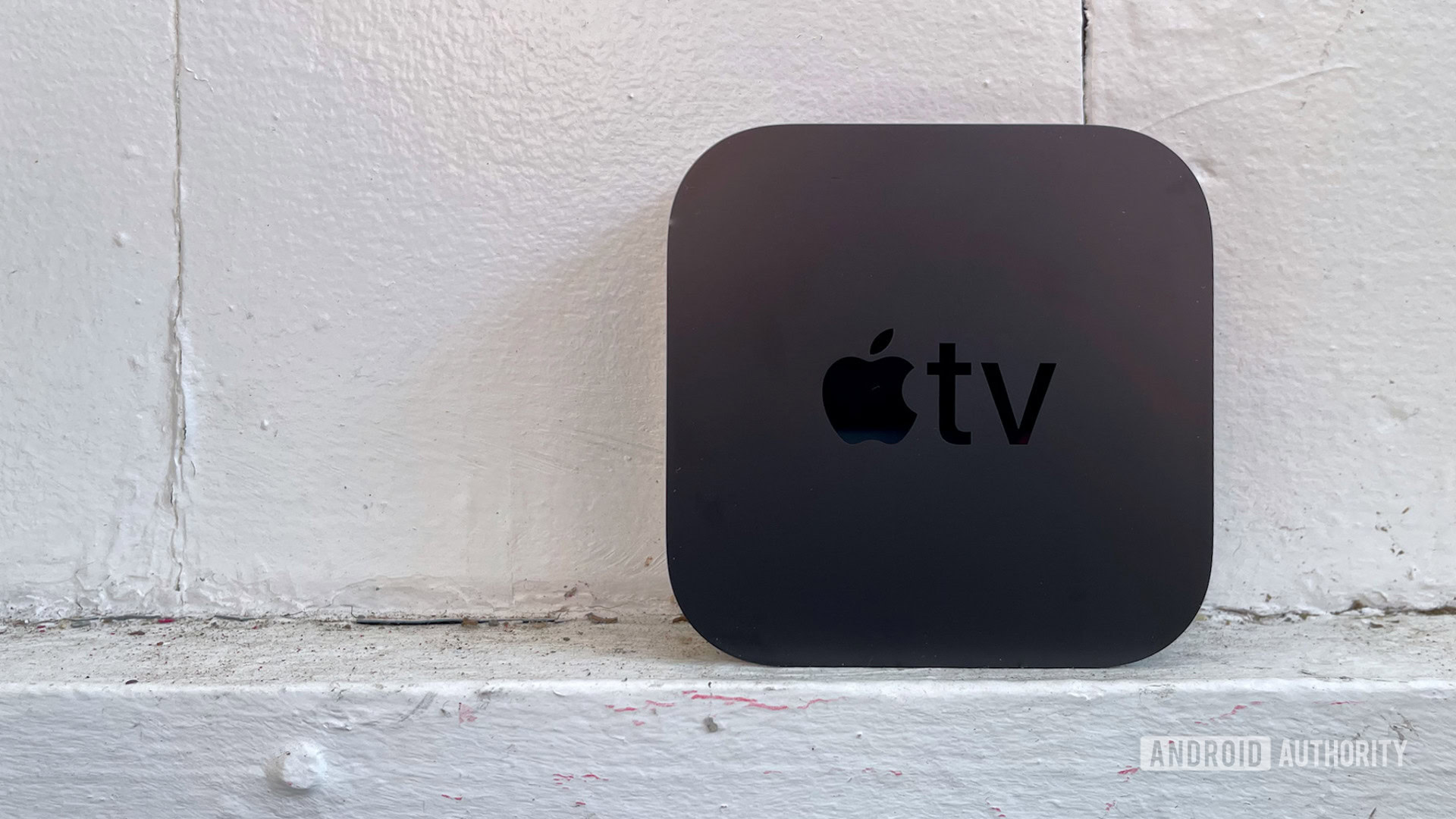
- Apple TV 4K (32GB): $179/£179/€199
- Apple TV 4K (64GB): $199/£199/€219
The Apple TV was long overdue for an upgrade. The original Apple TV 4K had been around since 2017 and was hindered by an outdated processor and a fussy remote control. Apple recently saw fit to make the needed changes and released the Apple TV 4K (2021) with a whole new remote in May (also available separately).
As before, the Apple TV 4K comes in two variants: one with 32GB of storage and one with 64GB of storage. Doubling the storage costs just $20 and seems like a good idea for anyone looking to buy one. The new model runs the same software as the old Apple TV 4K, so don’t expect the basic experience to be vastly different between the two. Are the under-the-hood updates enough to recommend the new model compared to the old one, or the more affordable Apple TV HD? Let’s dig in.
Has the design changed at all?
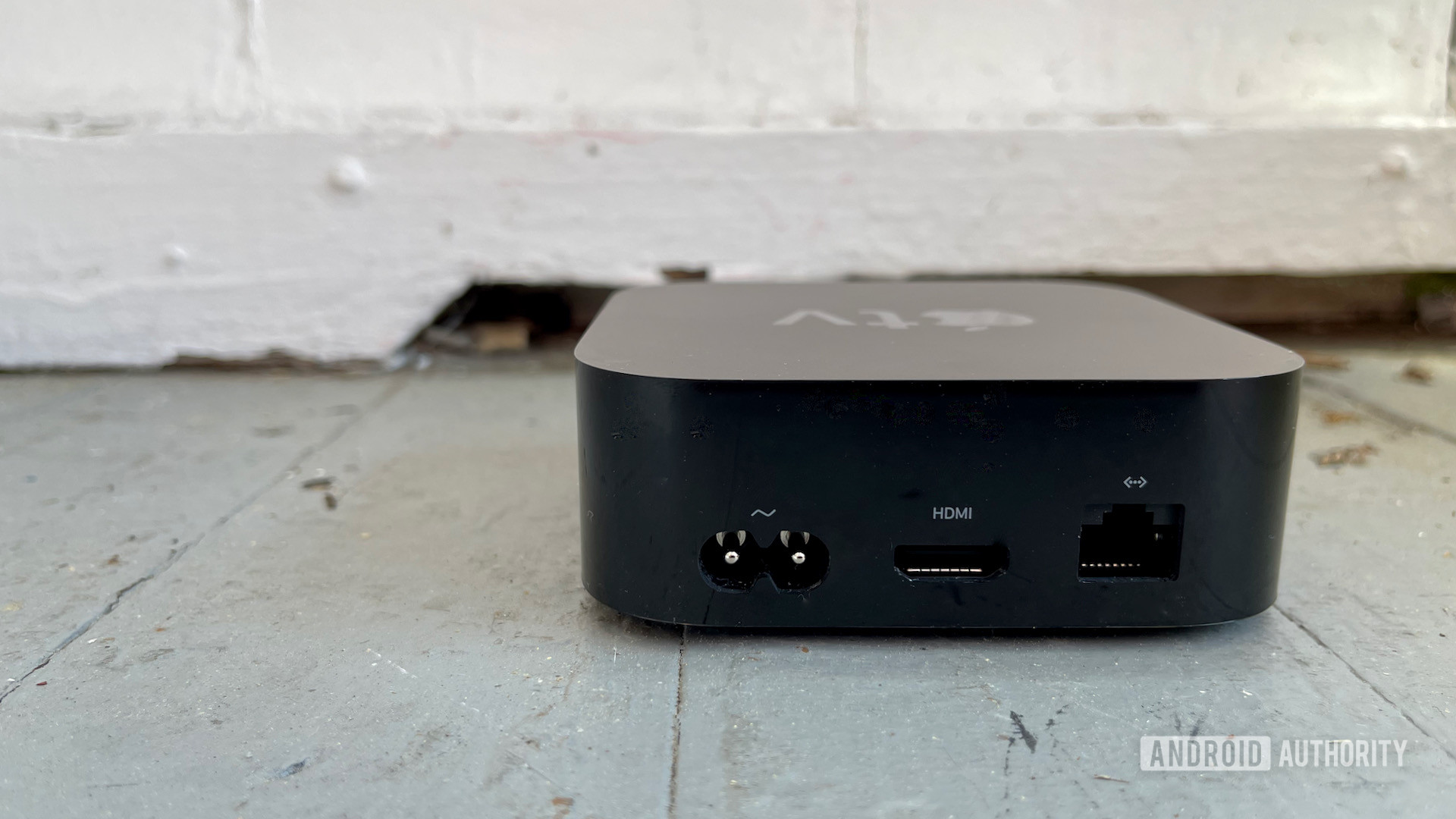
The Apple TV has the same footprint as the outgoing model. That is to say, it looks like an iOS app icon when viewed from above and a bit like a puck as it sits in your TV cabinet. For comparison, it’s about half the size of the Amazon Fire TV Cube.
More: Must-have apps for your streaming device
It also has the exact same ports as the 2017 model. That means you’ve got a power port, an HDMI port, and an ethernet port. That’s it. Many streaming boxes rely on Wi-Fi only for internet connectivity, so the ethernet port is nice to have.
A small white LED on the front lets you know when the Apple TV is powered on. It will blink orange if there’s a problem. An IR port is there, too, but it is hidden well by the casing.
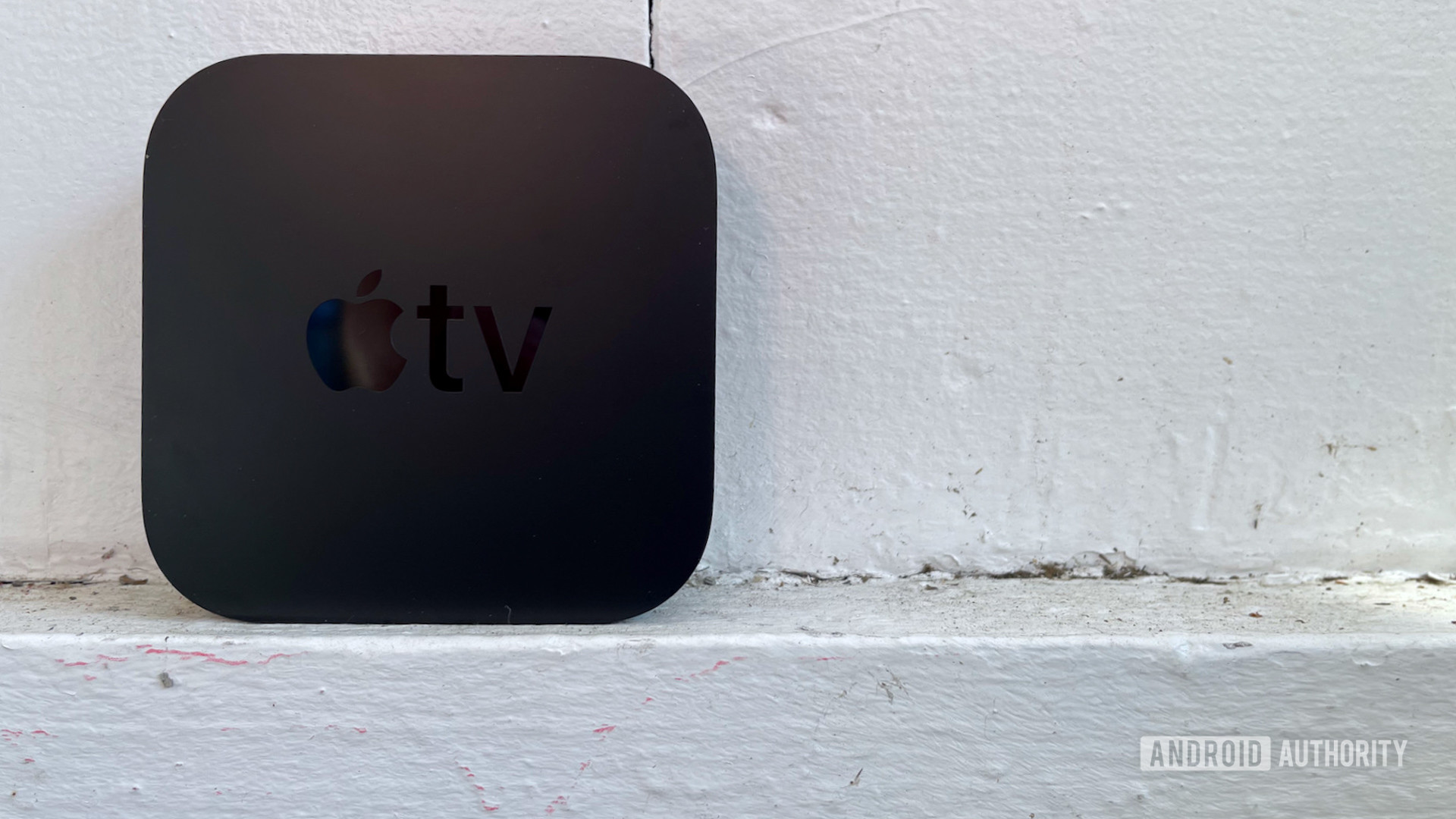
The Apple TV 4K is a simple piece of hardware, as a streaming box should be.
How does the new remote perform?
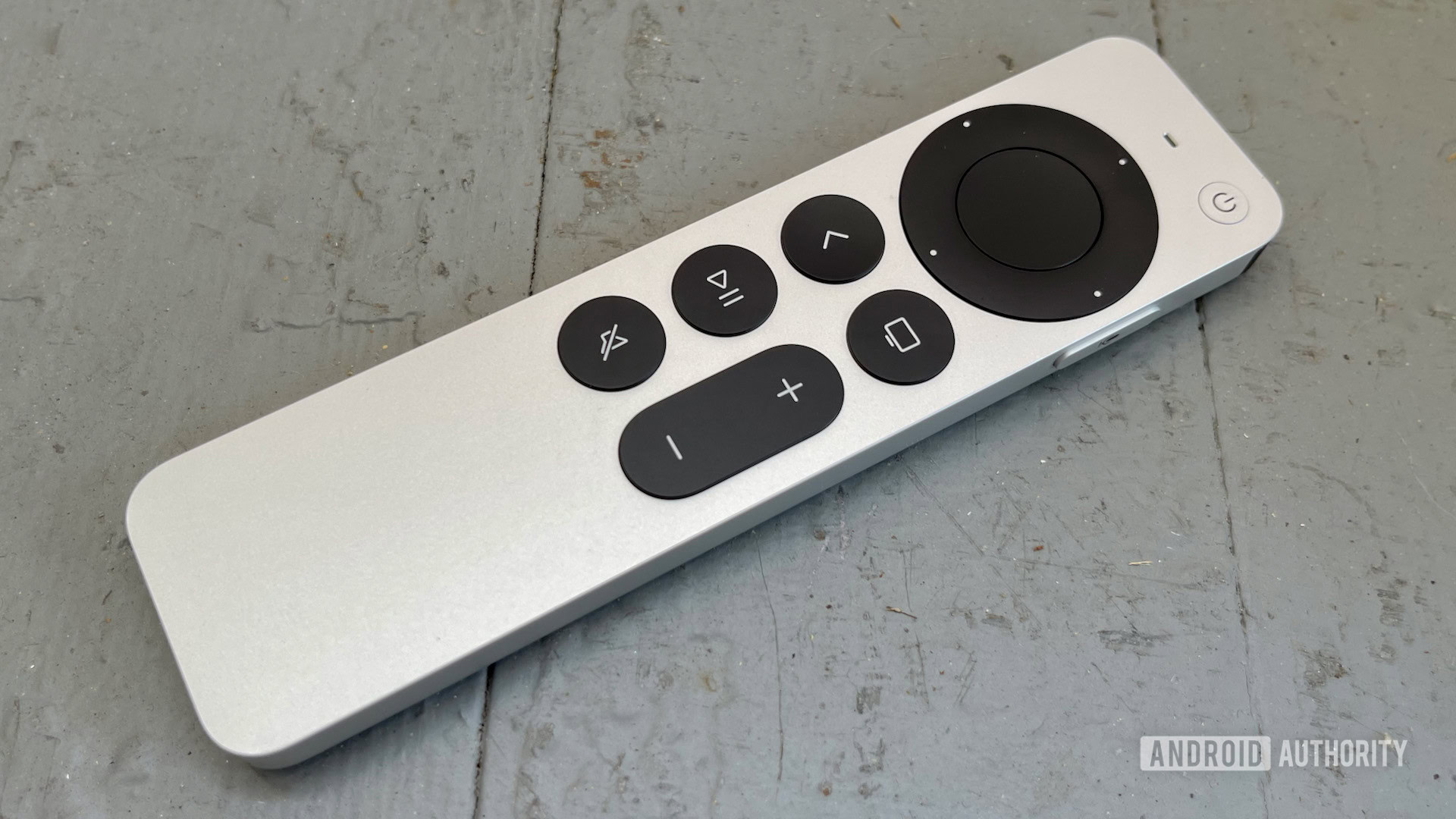
The outgoing Apple TV remote was a usability disaster. It featured a touchpad-like surface near the top to aid with navigating the user interface, but it was fussy and widely bemoaned. The new Apple TV 4K remote fixes just about everything.
One of the first things you’ll notice about the new remote is how thick it is. It’s a significant piece of aluminum and I like the heft. A number of dedicated buttons make dealing with tvOS a breeze. There’s a power button, back and home buttons, a play/pause button, and mute and volume controls. The Siri button has been relocated to the right edge of the remote, mirroring its location on the iPhone.
Apple iPhone buying guide: Which iPhone is right for you?
A large circular directional button replaces the old touchpad. It has four dedicated arrows for navigating the UI, and a central button for making selections. These surfaces are also touch-sensitive, so you can run your thumb around the outer edge of the circle to scrub forward or backward through your song or movie, and swipe up, down, and back and forth to move through long playlists and menus.
Not all Apple TV apps have caught up with this new remote. I hit a few snags here and there with third-party apps, but the vast majority work without issue. In particular, some video player apps (looking at you, Disney Plus) rely on the older remote’s touchpad. What you’ll find is that they won’t obey the forward/backward scrubbing that’s possible with Apple’s own apps. It’s unclear if or when these third-party apps will be allowed to access the new scrubbing features, or if Apple will reserve them for its own apps. Moreover, some motion-centered games are incompatible with the new remote due to the lack of a gyroscope and accelerometer.

Siri’s forte is finding content. Apple’s infamous digital assistant, which often isn’t all that helpful on the iPhone, really shines on the Apple TV range. It’s able to find content much faster than you can by searching manually, and the new mic is more sensitive and able to hear your voice over loud action movies.
Related: The best Siri commands for productivity, information, laughter, and more
Overall, the new Apple TV 4K remote is much, much better — but there’s a bit of a twist. Apple is bundling the new remote with the cheaper Apple TV HD, as well as selling it separately for $59 for your existing Apple TV.
As always, you can also use the Remote Control app from Apple to navigate your Apple TV 4K on your iPhone or iPad. The app’s functionality mirrors that of the older remote control. It works, but you’re better off with the new remote.
Can it really calibrate your TV?
Apple claims the new Apple TV together with your iPhone can calibrate the screen of your television set for better color balance. How does it do this?
Using the menu, you can turn on the calibration feature. You’ll need an iPhone handy with Face ID (basically an iPhone X or newer) running iOS 14.5. The Apple TV 4K (with tvOS 14.5) displays a white noise pattern on your TV and you need to hold the phone with the selfie camera pointed at the screen. Once the phone sees the white noise pattern, the test area will run through red, green, blue, and white tests with the phone reading the colors. The phone and the Apple TV talk to one another and determine what the color should look like on the screen. You’re then presented with the results, which you can see below.
Does it look any good? Well, it’s certainly warmer than the uncalibrated setting. Movies and television shows did look a bit richer on my TV set. Whether or not you like the look of the color-calibrated setting is entirely up to you. I decided to apply the color balance setting recommended by Apple and have left it that way.
It’s important to point out that the Apple TV is not actually changing the settings of your television set. I checked, and all the brightness, contrast, and color settings were unchanged in my TV’s menu system. The color calibration is taking place within the device itself and the way it presents color to your television set.
See also: The best video streaming services: Netflix, Hulu, and more
I wouldn’t call this feature a gimmick, but my guess is a lot of people will ignore it.
Lastly, it’s worth noting that this feature is available to older Apple TVs as long as they are running the newest software. In other words, this tool is not an Apple TV 4K (2021) exclusive.
Does the A12 Bionic processor make a difference?
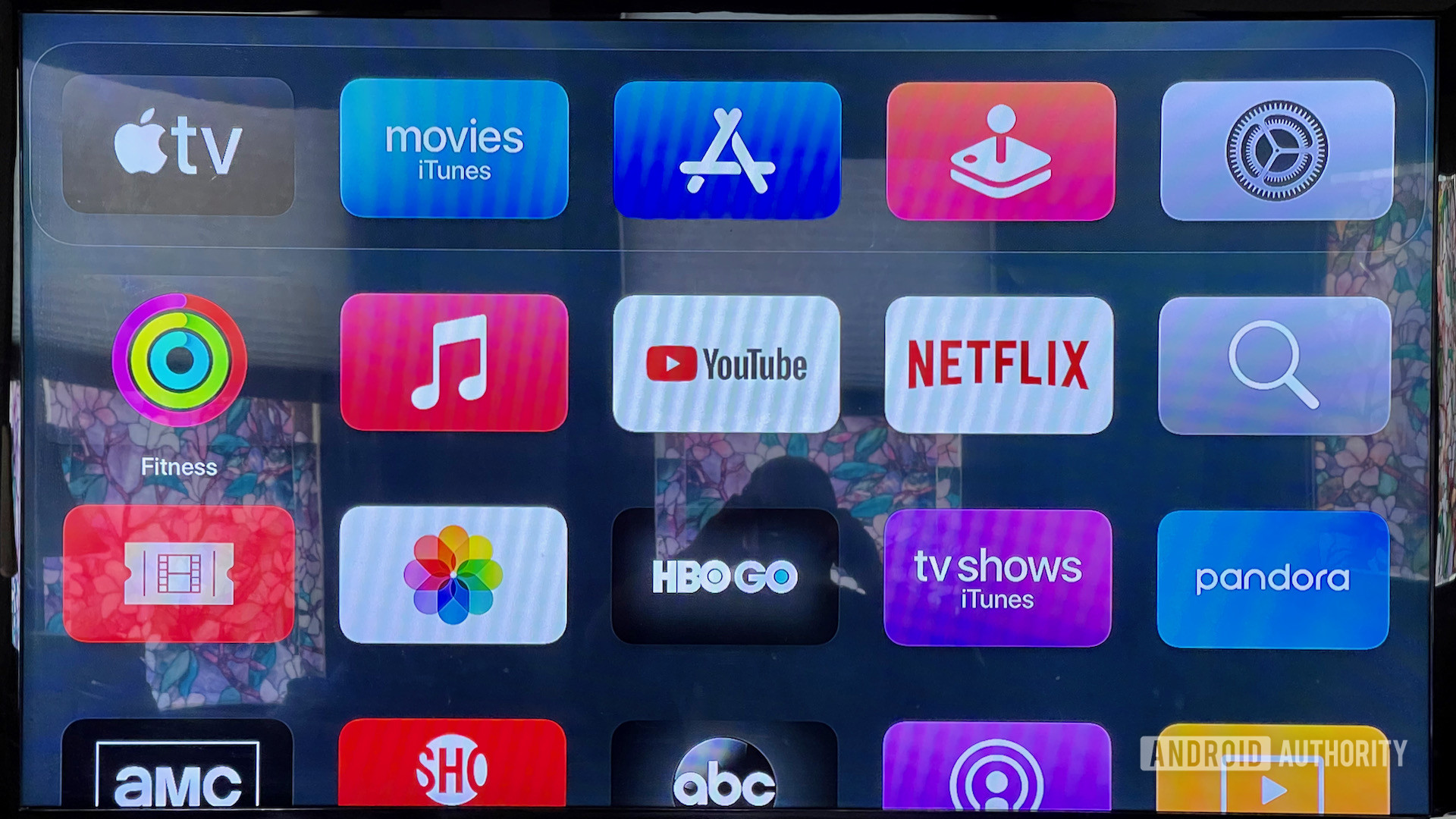
Yes, it really does. The A12 Bionic is the same processor found in Apple’s 2018 iPhone XS and XR, and the 2019 iPad Air and iPad Mini. The 2017 Apple TV 4K has the old 10X Fusion processor on board, while the Apple TV HD has the A8 processor. The A12 Bionic is several generations faster, and it shows. Parsing through the user interface was as smooth and quick as silk. Moreover, apps that generally took several seconds to load, such as Netflix or Disney Plus, jumped to life much faster.
A couple of other small speed updates are also on board. For example, HDMI support is boosted from 2.0a to 2.1. The main difference between these two is bandwidth, which jumps from 18Gbps to 48Gbps with support for 10K resolutions at 120fps. The Apple TV isn’t taking advantage of this yet (it maxes out at 60fps), but it might down the road. Wi-Fi is boosted as well from 802.11ac Wi-Fi 5 to 802.11ax Wi-Fi 6. This is another generational upgrade that improves bandwidth and speed.
Taken together, I noticed a significant jump in performance across the board when compared to my Apple TV HD, though less so when compared to the Apple TV 4K (2017). There was less lagging and hanging, and the machine spent less time loading apps and content. It’s far faster than anything I’ve seen from Amazon or Google, but Amazon and Google aren’t necessarily trying to compete on hardware speed.
Anything else?
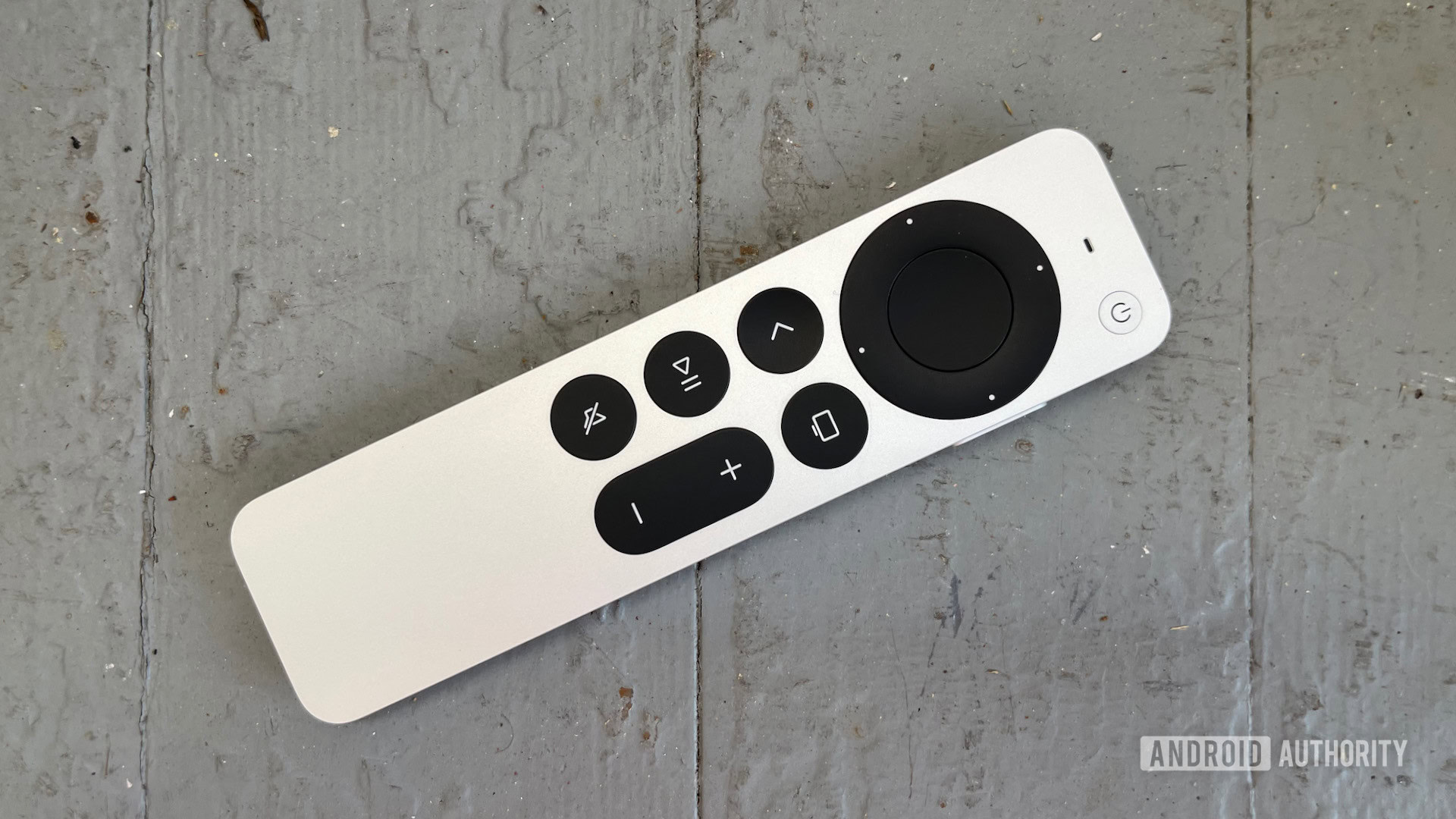
- Apple ecosystem: The Apple TV of course serves as a casting destination for iOS devices via AirPlay. You can hook it up to one or more HomePods for stereo sound (those with compatible TVs can also streaming high quality audio to a HomePod thanks to the new HDMI 2.1 eARC capabilities too). You can also beam Bluetooth content to two sets of AirPods for silent nighttime viewing, though it doesn’t support spatial audio yet. While you can quite happily enjoy using the Apple 4K TV if you’ve got an Android phone, the natural integration with other Apple devices is a significant bonus.
- tvOS: Apple’s TV platform is usable and makes sense. You can install as many or as few apps as you wish, and access Apple Arcade for games and other content. Apple offers an app store to its TV box that includes lots of content providers, such as Netflix, Hulu, and Disney Plus. There are also music apps, as well as podcasting and photo apps. The Apple TV app is easy to confuse with the Apple TV Plus service, which is a for-pay content feature. The Apple TV app is simply the basic tool for accessing your own content library, etc.
- Dolby: Dolby Vision is on board for the best picture, with Dolby Atmos available for the best sound. As long as your TV supports the same two specs (many do), you’ll get top-notch visuals and audio. Of note, the Apple TV 4K (2021) supports 4K at 60fps and will upconvert standard definition content to 4K. Dolby sound is improved to the E-AC-3 7.1 surround spec.
- Apple TV Plus: The Apple TV Plus content service is available for free for one year to those who purchase the new Apple TV 4K. This service gets you original content from Apple’s studio, such as Ted Lasso and The Morning Show. It’s definitely worth it for free for a year. After that, you’ll have to pay $5 per month.
- Apple Fitness Plus: This is another Apple service and it works in coordination with an Apple Watch. So long as you have both the Watch and the TV you get access to dedicated workouts and in-session metrics. A free 30-day trial is available if you want to test it out, then it is $10 per month.
- Apple Arcade: Apple offers new Apple TV 4K owners a three-month trial of its all-you-can-eat gaming service called Apple Arcade. The Arcade offers a wide array of games that you can play with either the Apple remote control or an Xbox controller. After the free trial, Apple Arcade costs $5 per month. While gaming isn’t uncommon on premium streaming boxes, few can offer as many well-optimized, sometimes exclusive games to play in a single subscription.
- Multi-user support: The Apple TV 4K supports multiple users in the Control Center. Each family member can create Up Next lists, as well as manage their video and music collections. This is really helpful when it comes to keeping Apple Music playlists separate.
- Thread: Apple added support for Thread in the new TV box. Thread is similar to ZigBee or Z-Wave in that it is an internet of things networking standard. It can be used to manage HomeKit devices such as smart thermostats or lights. HomePod Mini also supports Thread, as do some Nest products from Google and lighting products from Eve. Apple hasn’t called attention to what Thread can be used for, but it does future-proof the Apple TV 4K (2021).
Related: Apple TV Plus vs Netflix: Which should you pick?
Apple TV 4K (2021) specs
| Apple TV 4K (2021) | |
|---|---|
| Processor | A12 Bionic chip with 64-bit architecture |
| Ports and interfaces | HDMI 2.1 (eARC) 802.11ax Wi‑Fi 6 with MIMO; dual-band (2.4GHz and 5GHz) Thread Gigabit Ethernet Bluetooth 5.0 IR receiver Built-in power supply |
| HDR formats | Dolby Vision HDR10 HLG |
| Capacity | 32GB 64GB |
| Siri Remote | Bluetooth 5.0 IR transmitter Lightning connector for charging Rechargeable battery Charging via USB to computer system or power adapter Control your TV or receiver via IR or CEC.3 |
| Dimensions | 1.4 x 3.9 x 3.9 inches 35 x 98 x 98mm |
| Weight | 15oz 425g |
Value and competition
With a starting price of $179, the Apple TV 4K (2021) is one of the most expensive streaming boxes on the market. Some might say that’s typical Apple. It’s true, you’re paying a lot for the Apple TV 4K, but if you’re a home theater geek who wants the absolute best in terms of picture and sound, the Apple TV 4K (2021) delivers those in spades.
However, there are options. First is the older Apple TV HD. This 2015-era streaming box, which is now being bundled with the new remote, is best reserved for those who have not yet upgraded to a 4K television. It costs $150, which is a bit much given its age and specs.
Related: The best Android TV boxes of you can buy
High-end options for non-Apple people include the Nvidia Shield TV ($149) and TV Pro ($199). These run Android TV and have Chromecast functionality built-in. Where the former is a simpler solution that mostly targets the streaming crowd, the latter is a more gaming-focused rig that has USB ports for accessories, Plex server capabilities, and more. These devices are from 2019, so they’ve been around for a bit, but they’re a great option for power users.
The Amazon Fire TV Cube ($119) is another option. It’s $60 cheaper than Apple’s streaming box and it gives you lots of content options. Moreover, it also supports Dolby technologies for picture and sound quality. Lastly, the Fire TV Cube has Alexa built into the box itself. This means you can ask Alexa for assistance even when you’re not watching TV. With the Apple TV, you need to have the device on and use the remote to access Siri (or use your iPhone).
It's hard to say the Apple TV 4K (2021) offers $100+ more value than some competitors.
Beyond these boxy options, there is a universe of streaming sticks from Amazon, Roku, and others. Streaming sticks, such as the Amazon Fire TV Stick 4K ($49), the Chromecast with Google TV ($49), or the Roku Streaming Stick Plus ($49), provide you with access to much of the same content for far less cash, though they are sometimes underpowered and less feature-rich.
It’s hard to say the Apple TV 4K (2021) offers $100+ more value than some of these because at the end of the day they all provide access to many of the same streaming services. Moreover, Apple has now ported its Apple TV app, which includes the Apple TV Plus service, to several competing platforms (Amazon, Roku, Google TV) to ensure you have a reason to subscribe. In other words, Apple hasn’t locked Apple TV Plus subscribers into a single place for their content. That’s good for consumers.
There’s another big “but” here. Apple is selling the new remote, with compatibility for the older Apple TV 4K and Apple TV HD, separately for $59. That means if you’re running one of the older Apple TV boxes and simply want to upgrade the remote, you can do so for far cheaper than the $180 price tag of the Apple TV 4K (2021).
Apple TV 4K (2021) review: The verdict
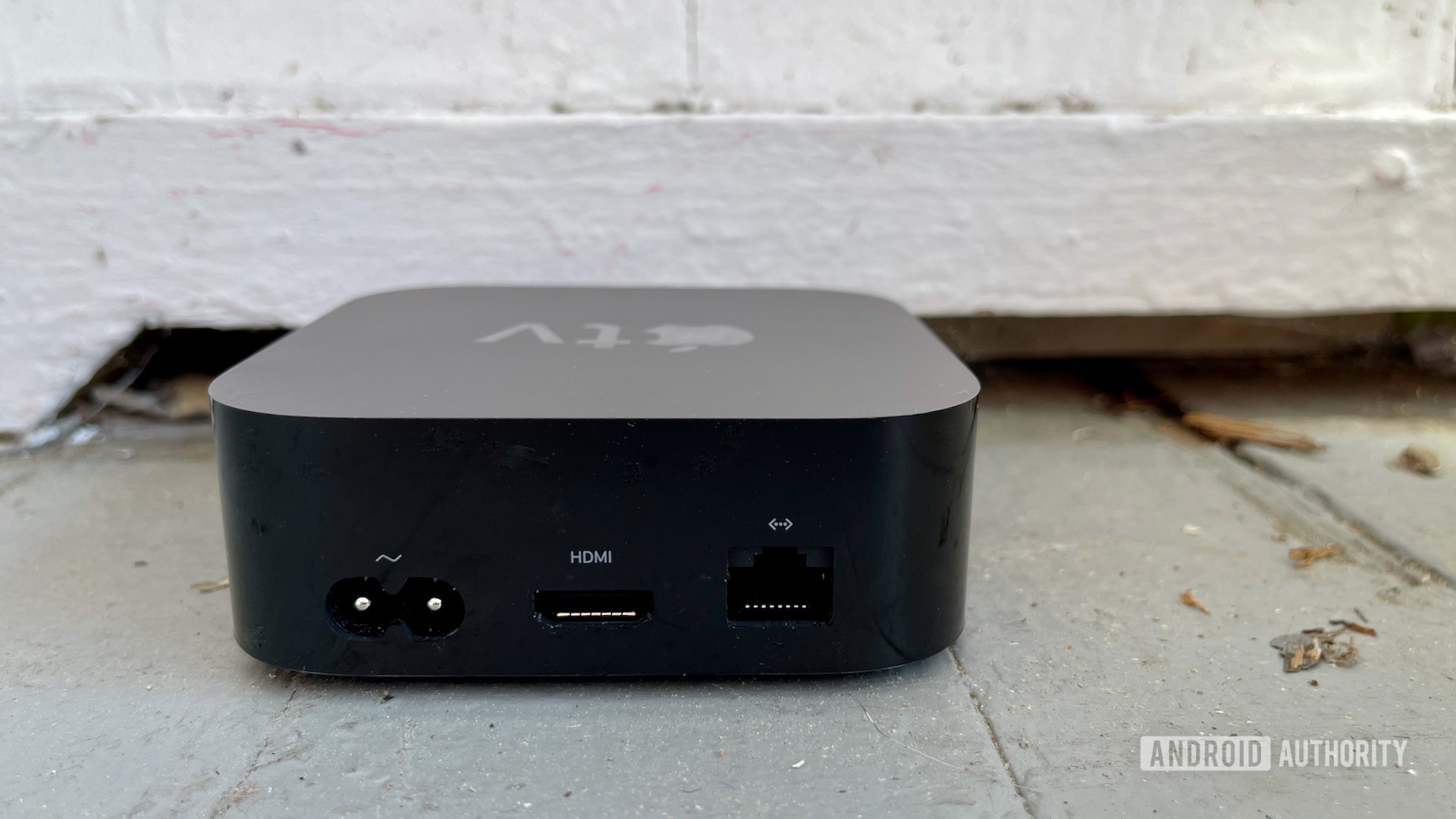
There’s no question the Apple TV 4K (2021) is a worthy upgrade from the 2017 model. With the faster processor, the new remote, and other new specs, it offers you a solid streaming experience in a compact and usable package. As expected, it covers the latest in terms of video and audio performance. Apple regularly updates its devices and adds new features all the time. You can rely on years of support for the Apple TV 4K.
Though everyone can get something from the Apple TV 4K, there’s no question iPhone, iPad, and other Apple device owners will get the most out of it, thanks to the larger ecosystem. Non-iPhone owners can still enjoy the Apple TV 4K, but might be better served by a different ecosystem. This is especially true for those who have no interest in Apple’s “Plus” services (Fitness, Arcade), which require iPhones and other Apple hardware.
The new Apple TV 4K is what a streaming box should be in 2021, though it's pricier than most.
Likewise, if you’re using the Apple TV HD and have a 4K television set, it’s time to make the leap to 4K. The TVs, the content, and the streaming boxes are all in place and the new Apple TV 4K will help you get the most from your television set. If you’re still relying on the 2017 Apple TV 4K, I’d suggest you upgrade the remote only and save yourself $120.
The new Apple TV 4K is what a streaming box should be in 2021. However, most people can get by with a cheaper alternative.
